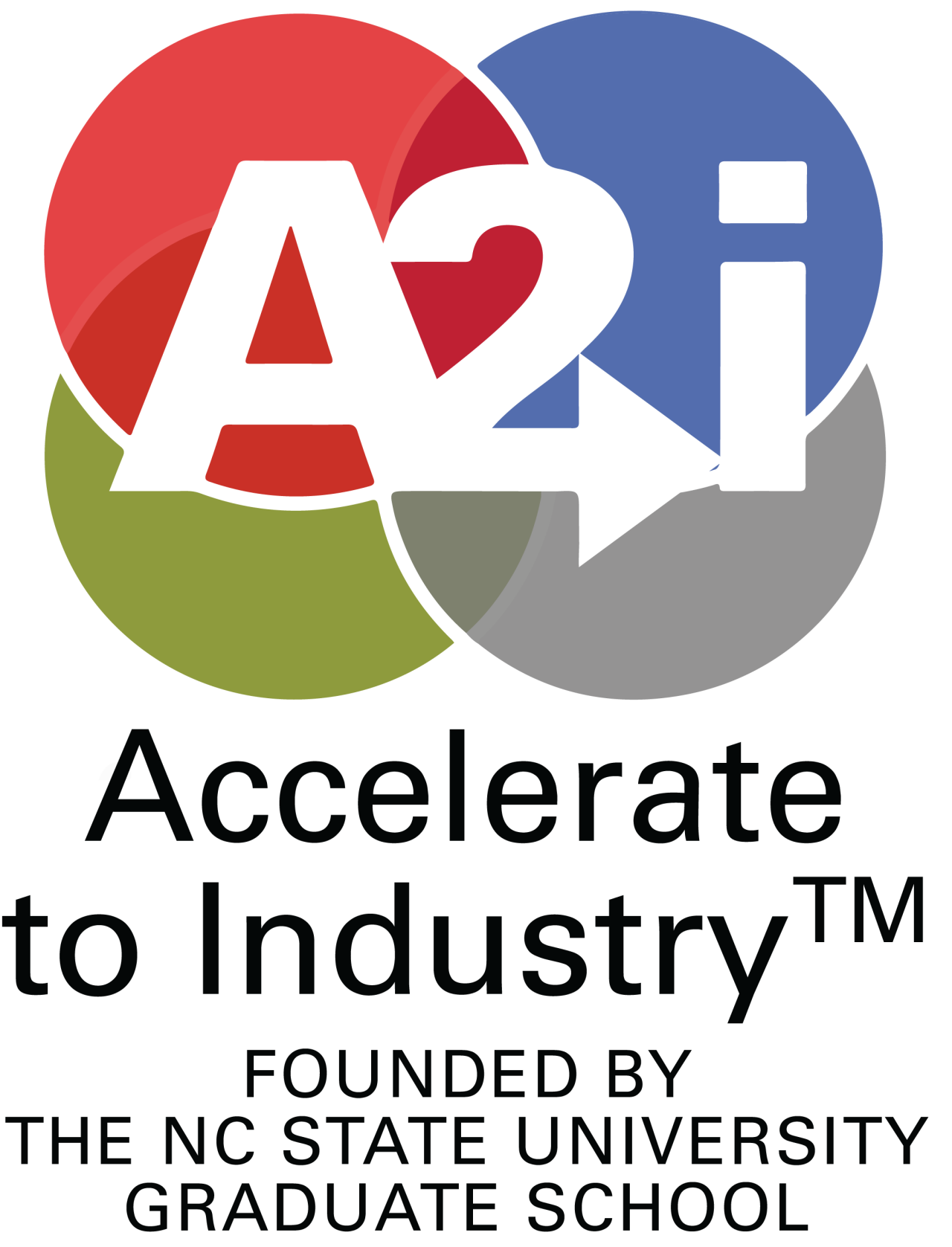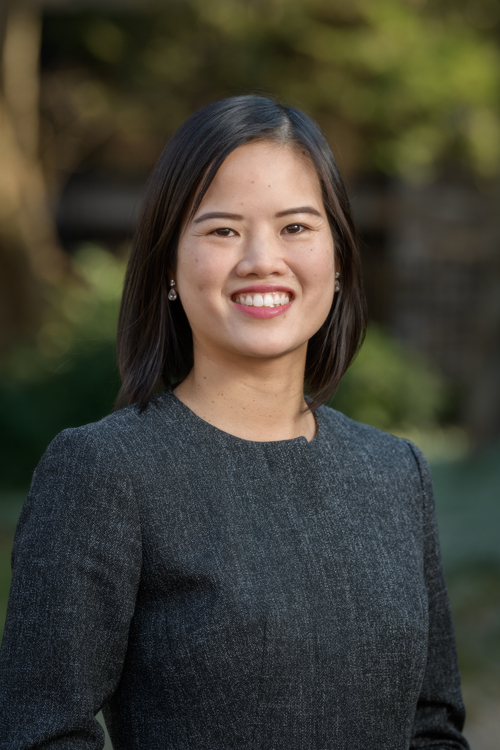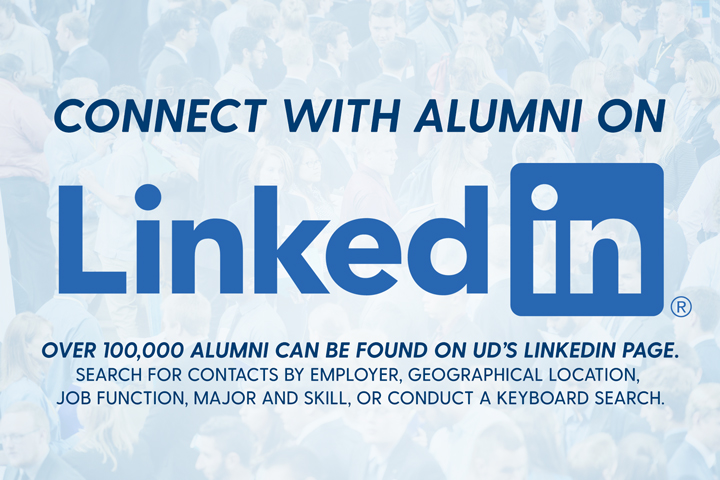
Graduate Students & Postdocs

-
7 Expert Tips for Career Success
February 28, 2024 | Written by Jessica Downey -
How UD CAMI is Breaking the Barriers to Student Success
March 14, 2023 | Written by Jessica Downey -
From the graduation stage to the workplace
May 23, 2022 | Written by Jessica Smith
More than 21,000
Jobs & Internships
Available Now!
GRADUATE STUDENTS & POSTDOCS
The Career Center recognizes the unique career development needs of graduate students and postdoctoral trainees. These include support for the academic job search, transition to a career outside of academia, continued development of professional skills and access to employers seeking graduate-level talents.
Career Support for Graduate Students and Postdocs:
In Fall 2020, the University of Delaware Graduate College launched Accelerate to IndustryTM (A2i) a workforce development program for STEM trainees founded by the NC State University Graduate School. The A2i program represents a bold new approach to enhance career readiness among graduate students and postdoctoral trainees. The goal of this NSF-funded program is to equip participants with the knowledge, skills and abilities to transition and thrive in a variety of careers. Partnering with NC State on A2i, University of Delaware aims to position itself as a national model for graduate and postdoctoral career education.
The A2i Job Search Strategies is a multi-week module comprising two parts: career presentations from industry guest speakers and career skill-building workshops led by the senior assistant dean for graduate professional development and other graduate career development experts. The goals of JSS are to raise awareness of career options, methods to navigate the job search and strategies to secure desired positions.
The JSS module is offered in the fall semester. Students and postdocs in all stages of their training are encouraged to participate in this module.

Individual career appointments with a senior assistant dean for graduate professional development are available to postdoctoral trainees and graduate students who are enrolled in UD’s graduate degree programs. Topics of discussion can range from exploring career options and goal setting to building professional networks and job search. Please make an appointment online through Handshake.
Academic departments, faculty members and graduate student organizations can request career skill-building workshops for their courses or program offerings. These independent modules span the entire spectrum of the job search process from exploring career options and building professional networks to creating effective application materials and preparing for interviews and salary negotiations. The typical workshop duration is one hour. If desired, workshops can be combined and/or extended to include additional hands-on exercises and peer feedback opportunities. Please send workshop inquiries or questions to Dr. Suprawee Tepsuporn, senior assistant dean for graduate professional development, at suprawee@udel.edu.
The Career Spotlight program is aimed at increasing knowledge of career options beyond academia and facilitating connections between Blue Hen alumni or employers and current graduate students. Career Spotlight offers opportunities for students to learn directly from guest speakers about their career journeys and how they successfully translate their graduate training to a variety of careers.
Example of past Career Spotlight programs:
“From Doctor (Ph.D.) to Diplomat” with Dr. Victoria Sanchez ’17 (Ph.D., Political Science and International Relations)
“Reformulating Models of Professional Success: Pursuing an Alt-Ac Career Path in Research Administration” with Dr. Kate Sanford ’12 (Ph.D., English)
“Transitioning into Instructional Design and Life after Graduate Study” with Dr. Clayton Colmon ’20 (Ph.D., English)
The Job Shadow Program connects alumni and employers to students for one-hour informational interviews. Students can ask their host questions regarding a specific industry area, the job search process and the host’s career journey to gain insight into the world of work.
Meet face-to-face or virtually with employers at our career fairs and networking meetups.
Employers utilize Handshake to recruit graduate students for jobs, internships and other career experiences. Search and apply for these opportunities through Handshake.
The Virtual Interview Program offers students the opportunity to interact with approximately 160 organizations each year seeking students to fill full-time, part-time, and internship positions. While the organizations who participate are quite selective and competition for positions quite keen, the process of interviewing can assist you in better defining your career goals and improve your interview skills.

Where Are You in your Career Journey?
Finding our calling is a lifelong process, one that is influenced by stages of our life and career journeys. Some of us may have no idea what we want to do, others may have some ideas but not sure how to decide and others may know what they want to do and need help launching their job search. Regardless of where you are in your career journey, know that you are not alone. Read below to discover resources to help you explore career options, clarify your goals, build professional connections and master the job search skills needed to land meaningful careers.
When you are unsure about next steps and open to new possibilities, career exploration may be the first step on your career journey. This discovery and exploration phase utilize self-reflection exercises and assessment tools to help you make thoughtful decisions regarding your career paths. By learning more about your skills, interests, values and personality, you get a more thorough understanding of yourself and can better articulate your career goals to peers, professors and employers. Information gleaned from these exercises can also help you focus your job search strategies.
If this is where you are in your career journey, we encourage you to invest time learning about yourself. Use the resources below to reconnect with what inspires you, what brings you joy and what you are great at.
myIDP: This free online assessment tool will help provide tangible career options for students in STEM fields. Learn more about your interests and career fit with this tool built specifically for PhD trainees.
ImaginePhD: Online career exploration and planning tool for PhD students and postdoctoral scholars in the humanities and social sciences.
- Cheeky Scientist: A platform for academics exploring industry opportunities. Cheeky Scientist Industry Careers for PhDs Podcasts
Vault Guides - A research library that includes company profiles, industry information and more career exploration resources.
LinkedIn Groups - Beyond just joining LinkedIn, groups are a great way to expand one's network, contribute to a community and get questions answered. Start with some groups geared toward PhD careers. See what the members are doing, participate in discussions, uncover resources and even ask your questions.
PhD Careers Outside of Academia
Beyond Academia: Connecting PhDs with the World
Global PhD Network
The LinkedIn Alumni Tool
- Professional associations: Join professional associations and attend conferences for industry-specific learning and networking opportunities.
Alternative PhD Careers: A networking group for PhD’s who work or want to work outside of the academy.
Lerner Graduate-MBA Career Resources: Find resources specific to pursuing a career in the business world.
Recommended Reading:
“Do What You Are” by Paul Tieger and Barbara Barron-Tieger
What Color is Your Parachute
I Could Do Anything if I Only Knew What It Was
A PhD Is Not Enough
Next Gen PhD
Putting Humanities PhD to Work
Other strategies to explore career options include attending career fairs, participating in employer meetups or information sessions, site visits and job shadows.
After exploring career options, you may have a short list of organizations and/or job titles you are interested in pursuing. If you are in this stage of your career journey, it is paramount to build professional connections.
Your professional connections may provide industry-specific knowledge and advice, help you make informed career decisions, refer opportunities you may not be aware of and introduce new career options you have not previously considered. They can help you land your dream career.
Building professional connections via informational interviewing can be one of the most valuable and productive job search strategies. Informational interview is an informal way to gather career information from professionals who are in roles or organizations you are interested in. Doing informational interviews with UD graduates and alumni from your undergraduate institutions is a great way to begin growing your professional connections. We encourage you to use these resources and tools to help you identify professionals to interview and prepare for your conversations.
In addition to building professional connections, landing your dream career also means having both technical and soft skills employers look for. We encourage you to master these sought-after skills through your thesis project, leadership opportunities in graduate student organizations, community engagement activities and more.
We recognize that having internships is another key aspect of building professional connections and field-specific skills. We are in the process of engaging with employers and corporate partners to design an internship program for graduate students. Please stay tuned.
Some of us know exactly what career we want to pursue and the support we seek is to strategize and launch the job search process. If this is where you are in your career journey, we encourage you to understand the job search process for your specific career field. A general overview of the job search is outlined below.

Job Search Advice
The UD Career Center provides general tips on resume and cover letter writing, interviewing and negotiating offers and information for international students. Please remember that as a Blue Hen, you have access to resume review drop-in hours at the Career Center, as well as individual career advising appointments to help you throughout the job search process.
Here are additional resources, articles, websites and posts to help you refine job application materials, prepare for upcoming interviews and effectively evaluate and negotiate job offers.
Understanding the Recruiting Timeline
After deciding on the careers that align with your skills, interests, values and personality, the next step is to get organized and set an action plan. Remember that recruiting cycles vary based on industry and organizations.
For example, if you decide to pursue an academic career, the recruitment timeline is typically nearly a year in advance. An institution seeking to hire an assistant professor for Fall 2021 will likely begin advertising the job opening in Fall 2020. The selection and interview process occurs in Spring 2021. Likewise, large management consulting firms begin their advanced degree candidate recruiting process in June or July for candidates they want to onboard the following summer.
On the other hand, other organizations typically do “just-in-time” hiring, which means job openings are posted when a new position is created or an existing position becomes vacant. Organizations that utilize “just-in-time” hiring practice expect that candidates who apply for the open position would be available to start within a few months.
As you build professional connections, please remember to ask about recruiting approaches of the organizations you are interested in. Understanding their recruiting practices can help you set a job search timeline that fits with your desired start date.
Refine and Tailor Your Application Materials
To formalize your candidacy to a position, you will need to submit an application via an organization’s online portal. To maximize your chance of landing an interview, make sure to refine and tailor your application materials so that they are in the best shape possible. Remember that while you have many skills, they are not equally valuable to an employer.
Nowadays, it is not uncommon for organizations to use application tracking software (ATS) to analyze candidates’ application materials and identify “best fit candidates.” To ensure your application is not screened out prematurely, make sure that you tailor your resume to demonstrate your match to the role you are applying.
The Hiring Process
After your application is received in the organization’s online portal, the hiring process can begin with a human resource representative reviewing the applications and shortlisting candidates for the hiring manager and/or search committee. Sometimes, the hiring manager or the search committee reviews the applications directly and identifies candidates they want to interview.
Preliminary screening of candidates via phone or virtual interviews typically follows. These initial interviews can be done with human resource representatives, hiring managers or the search committee. These initial screenings help the organizations narrow down the pool of candidates who will be invited for the next steps in the interview process.
After passing the initial screening, one or more rounds of interviews can be scheduled for the top few candidates, depending on the process of the organization and the types of positions. Once the interviews are completed, the search committee convenes to discuss the candidates and review feedback from colleagues who interacted with or interviewed the candidates. This process allows the hiring manager and search committee to identify their first or top two choices.
Once top candidates are identified, the organization may ask candidates to provide contact information for reference check, as well as permission to perform background check. Background checks can include verifying the candidates’ educational record, employment history, running credit checks and drug testing. Some organizations also check social media accounts to make sure potential employees are likely to represent the company in a professional manner.
The final step in the hiring process is extending a formal job offer to the top candidate. The offer letter normally includes the position’s salary, summary of benefits, paid time off, start date, potential severance pay and other terms and conditions of employment. Before you accept the job offer, review these terms carefully, preferably with someone who has a legal background. Consider negotiating salary or terms of your employment, and then accept or decline the job offer in writing.
In addition to visiting an organization’s career portal and finding job openings on Linkedin, these job posting sites offer listings in specific or across a variety of industries.
- American Alliance of Museum: Offers a job board for all museum professionals
- American Association for the Advancement of Science: Career and job posting portal for engineers and scientists
- American Historical Association: Jobs and professional development resources for historians
- Handshake: The Career Center’s job and internship posting portal
- Higher Education Recruitment Consortium: The Higher Education Recruitment Consortium (HERC) is a non-profit consortium of colleges, universities, hospitals, research labs, government agencies and related non- and for-profit organizations, committed to diversifying the pipeline of faculty, staff and executives in academia
- HigherEd Jobs: HigherEdJobs is a portal for jobs and career information in academia, including but not limited to tenure-track positions
- Idealist: Jobs, internships and volunteer opportunities in nonprofits
- Going Global: Offers search field for international jobs and internships
- National Association of Independent Schools: Offers job listing for independent K-12 schools
- NatureJobs.com: Science job posting portal
- New York Foundation for the Arts: Offers job board for working and emerging artists
- Publishers Marketplace: Offers a job board for a range of positions in publishing
- The Chronicle of Philanthropy: Offers job listing within the nonprofit sector
- The Muse: Job board and tips on everything from writing a cover letter to dressing for success
- USAJobs: The U.S. Federal government's official jobs site
- Vitae: Chronicle of Higher Education's academic and non-academic job and career advice portal
- Resume Best Practices Checklist
- Article: The CV Doctor (with samples)
- Article: From CV to 1 Page Resume
- Article: Reframing Doctoral Skills
ONLINE RESUME FEEDBACK SYSTEM:
- Resume Worded: Online resume critiquing system, allows students to receive customized suggestions for their resume based on criteria gathered from employers and UD resume standards – anywhere and anytime
GRADUATE RESUME TEMPLATES
Big Interview: Online interview preparation tool with preset questions to help you learn and practice your interview skills.

Suprawee Tepsuporn, Phd
Make an Appointment Online via Handshake

UD outcomes
Find out how graduates are succeeding
UPCOMING EVENTS:
The UD Career Center is part of the Division of Student Life, which advances equity and inclusion, deepens student learning and drives holistic development through education, experiences and communities.



